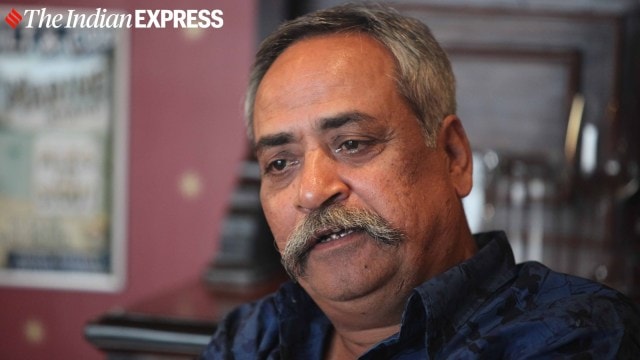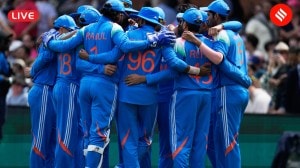Prasoon Joshi remembers Piyush Pandey: ‘He was proud of who he was and wore it like a medal. He never pretended’
Legendary adman Piyush Pandey breathed his last on Friday. Lyricist Prasoon Joshi reminisced about the warmth Pandey brought into every interaction, his way of twisting words, playing with phrases, and making people laugh when they least expected.
 Ad-man Piyush Pandey passed away on Friday. (Source: Express Archives)
Ad-man Piyush Pandey passed away on Friday. (Source: Express Archives)Lyricist, writer, poet, and fellow advertising professional Prasoon Joshi’s relationship with legendary adman Piyush Pandey, who breathed his last on Friday, spanned nearly three decades.
“I still remember my earliest days in advertising — I met him a bit unsure, carrying a few recordings of radio spots I had written. Piyush listened to them intently, every word, every pause. Then, in front of the team, he said, ‘See, he’s ideated, written, composed, and sung this. It’s fantastic. Prasoon, every talent you have is of use in this industry, so stay here,’” Joshi told The Indian Express.
He added that back then, there was a misconception among people like Pandey and him, people who hailed from smaller towns, that the language they spoke at home didn’t belong in agency corridors.
“Piyush changed that. He told everyone to use the language, to blur the line between who you are and what you create. That’s what I learnt from him — that ideas don’t come from pretending, they come from honesty. From who you are, from what you’ve lived. Piyush made a generation believe that you can be yourself — rooted in your culture — and still create work that connects with everyone. He showed us that being real and being emotional could be your biggest strength, not something to hide behind polish,” Joshi shared.
Recalling an incident that showcased Pandey holding onto his uniqueness even on foreign soil, Joshi said, “I remember once at Cannes, we were sitting in one of those buses going to the venue. Out of nowhere, he started humming a Rajasthani folk song. Then, one by one, he made the entire bus — full of different nationalities — join in. He was proud of who he was and wore it like a medal. He never pretended.”
Joshi reminisced about the warmth Pandey brought into every interaction, his way of twisting words, playing with phrases, and making people laugh when they least expected it. “That’s how he connected — through humour, through language. He never missed a chance to make you feel included, to create a bit of light-heartedness around him. It was his way of saying, ‘We will do this together.’”
When it came to work, Joshi said, Pandey believed in getting his hands dirty. “He never cut corners. I’ve been with him at family functions, sitting on the side cracking ideas and then joining in the festivities. Our work ethic was in sync, though our timings differed. I still recall, after working late into the night, his very early morning calls, his voice booming with a chirpy, ‘Kahan ho, Tiger?’ That work ethic has stayed with me and manifests in my own work life too.”
Another thing that touched Joshi was how Pandey kept his family close. “His family reminded me of the old joint families from storybooks — his proud brother and friend Prasoon, his amazing sisters, his nieces and nephews, and his wife, Nita. They were all part of our world of communication. He learnt that sense of sharing and togetherness from his mother, whom he often spoke about with great love. That was something that connected us deeply — our love for our mothers. We would sometimes sit late into the evening, talking about them, getting teary-eyed. Those are moments I’ll always hold close.”
As his parting words, Joshi recalled a walk he took with Pandey recently in Cannes. “I asked him, ‘At this stage in life, what would you tell me?’ He smiled and said something simple — the kind of thing only he could say — ‘Don’t change the authentic you.’ It reminded me of my own song — ‘Rehna tu hai jaisa tu.’ We kept walking slowly, both of us humming,” he said, adding that what he learnt from Pandey was that ideas don’t come from pretending but from honesty: “From who you are, from what you’ve lived.”
“Piyush should always be remembered for that — for his fertile, generous, and genuine approach to creativity. For his laughter and his courage,” Joshi signed off.







